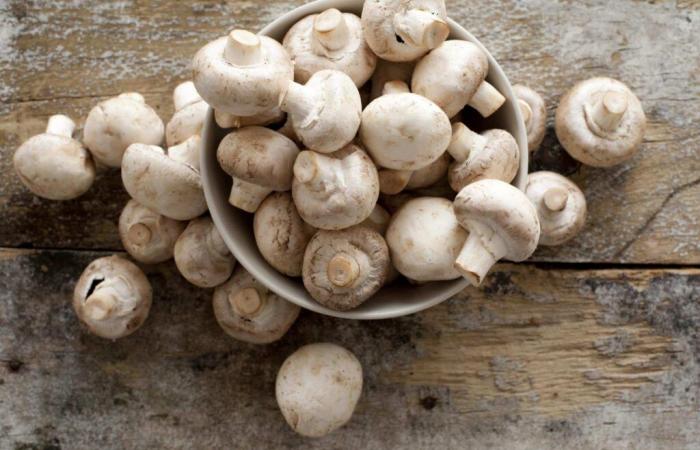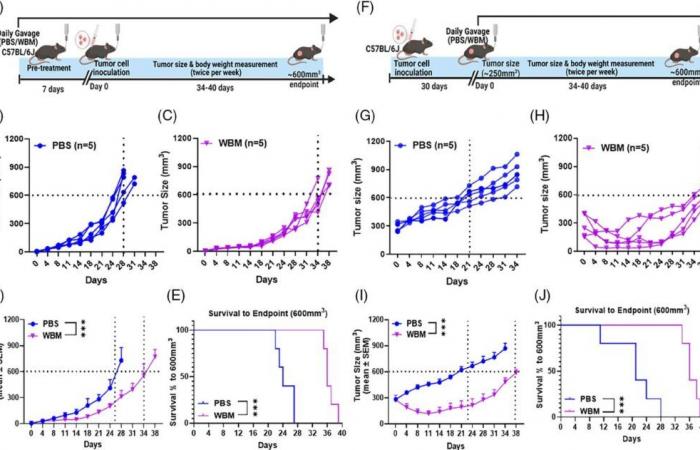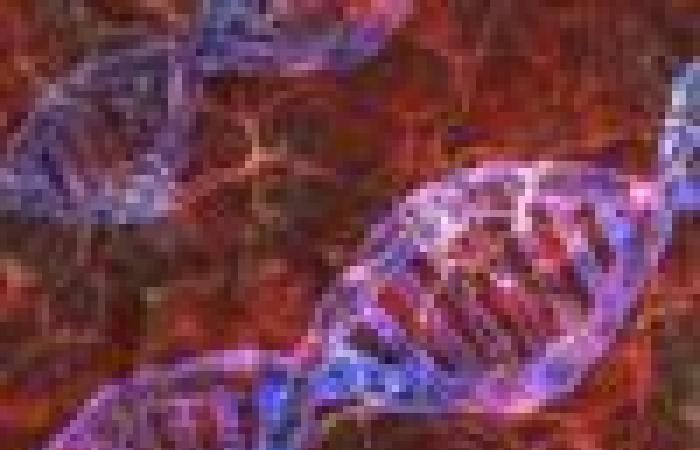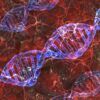⇧ [VIDÉO] You might also like this partner content
Study finds that button mushroom extract slows the growth of prostate cancer and improves immune response to tumor cells. Tests on mice and human patients have shown that the extract significantly reduces the concentration of specific cells linked to cancer cell proliferation. Ultimately, this nutraceutical could be used as a complement to traditional treatment and prevention strategies.
Nutraceuticals refer to foods with medicinal properties. While their health benefits have generally been long recognized in traditional medicine, their exploration in Western medicine is relatively recent. As part of the search for treatments against cancer, City Hope, one of the most important American research centers for this purpose, is exploring, for example, the effects of numerous ingredients such as grape seed extract, pomegranate , blueberries, jamun and button mushrooms.
“We see that plant-derived substances could one day be used to support traditional cancer treatment and prevention practices “, explains Shiuan Chen, professor in the Department of Cancer Biology and Molecular Medicine at City of Hope and corresponding author of the new study on button mushrooms, in a press release.
Button mushrooms (Agaricus bisporus) are the most cultivated edible mushrooms in the world. Although its anti-cancer properties are recognized, the exact mechanisms underlying these properties are largely misunderstood. Evidence supporting the use of mushroom-derived products as anti-cancer agents is mostly anecdotal and not subject to rigorous scientific testing. The new study by Chen and his colleagues provides very interesting elements regarding the biomolecular processes through which button mushrooms could contribute to the fight against cancer.
A notable reduction in tumor volume
Chen and his team conducted phase 1 clinical trials as part of a previous study to evaluate the effects of button mushroom extract. The drug was administered in tablet form to 36 patients suffering from recurrent prostate cancer. The treatment reduced prostate-specific antigen (PSA) levels – a biomarker used to diagnose prostate cancer – in 13 patients without affecting blood testosterone levels. The compound also exhibited a low toxicity profile.
The new study — detailed in the journal Clinical and
Translational Medicine – aimed to explore the immune responses induced by button mushroom extract through testing in mouse models and human prostate cancer patients. Researchers particularly focused on myeloid-derived suppressor cells (MDSCs), a specific type of cell that accumulates in the tumor microenvironment and inhibits the activity of other immune cells, such as cytotoxic T cells and natural cells. killers” (NK).
(B, C) et cumulative (D) after application of the treatment. (E) Survival curves show the time needed to reach a tumor volume of 600 mm3 in the prophylactic model.
(F) Schematic illustration of the therapeutic model of subcutaneous tumor xenografts in mice treated with PBS or WBM extract (6 mg/mouse/day) according to the specified schedule. Line charts show (G, H) individual tumor growth rates and (I) means after specified treatments. (J) Survival curves show the time needed to reach a tumor volume of 600 mm3 in the therapeutic model. © Xiaoqiang Wang et al.
The reduction in the level and activity of MDSCs would thus promote anticancer immunity. “ Although some drugs are designed and developed in this area, nutraceutical interventions could be a useful approach given their minimal side effects », Explains the team in its document.
In mice, the extract was evaluated for both prophylactic and therapeutic treatment. In the first case, the treatment was administered 7 days before tumor cells were inoculated into the animals (xenograft). In the second case, the drug was administered at a single daily dose in models that already had prostate tumors.
As part of prophylactic treatment, the drug significantly delayed tumor growth and prolonged the survival of mice. As a therapeutic, the extract shrank the volume of tumors and maintained this reduced size compared to the control group. The overall lifespan of animals has also been improved.
See also
The drug further significantly reduced MDSC levels and activity in all treated animals. This correlated with an increase in T lymphocytes and an improvement in the immune response mediated by them. A similar effect was observed in human patients after 3 months of treatment, along with higher NK cell activity.
Although these results appear encouraging, the researchers warn against self-medication or embarking on a specific diet without consulting a professional’s advice. Dietary supplements and button mushroom extracts are commercially available, but most do not follow the conventional approval procedure by health authorities.
« Our study highlights the importance of seeking professional advice to ensure safety and avoid self-prescribing supplements without consulting a healthcare professional. “, specifies Xiaoqiang Wang, medical doctor at City of Hope and lead author of the study. “ Although our research has yielded promising preliminary results, the study is ongoing and requires additional studies to confirm these results. », he adds. However, there would be no problem in adding more fresh button mushrooms in the daily diet. The next step of the study is to determine whether lower MDSC is associated with better clinical outcomes in prostate cancer patients.










